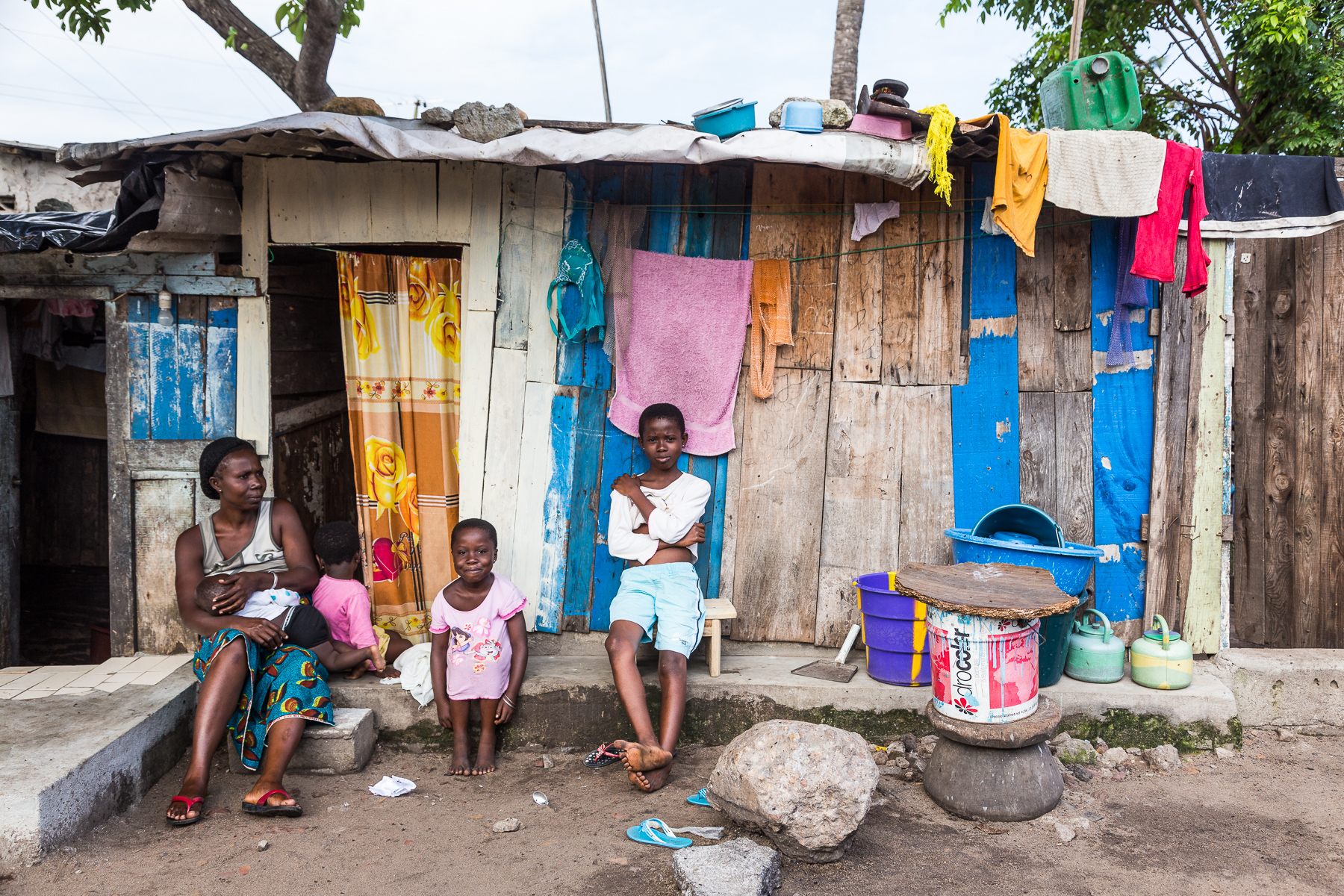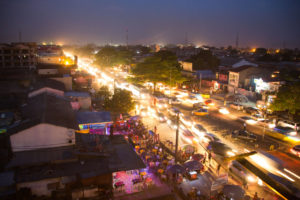
In Africa, community is the essence of life. To many Africans, community gives definition and value. When missionaries approach African communities with good news, their understanding and adaptation to those definitions and values affect how their message is received—or rejected.
In the rural “bush” areas, many communities have defined leaders, land boundaries, and rules for how to live within that community. But even in urban settings, where communities are often aligned according to people groups or nationalities, similar structures exist. It is important to understand the rural setting to understand the communal culture that carries over into the urban setting.
“In Africa, if we don’t respect and honor the community, we will encounter barriers to the gospel message.”
Insiders and Outsiders
In the United States, we’ve separated ourselves into our own community groups. We separate by neighborhoods, school districts, city limits, counties, and on a larger scale, states. We take pride in our communities and in the organizations in which we participate. However, there is a difference between our community mindset and the African mindset. Africans enjoy being together and have a deeper sense of belonging and responsibility to each other. The respect, care, and love in African communities creates envy within the hearts of people from other regions of the world.
As outsiders to their communities, we must learn the intricacies of how these communities work. The deepest desire of the missionary is to see the mystery of Christ Jesus become a reality to those who don’t know him. However, in Africa if we don’t respect and honor the community, we will encounter barriers to the gospel message.
The best way to do this is to come into their communities as learners. Learners don’t dictate the actions to be made or make the community revolve around their presence. Learners sit, observe, listen, learn, and ask good questions. We can start learning by acknowledging three key factors of African communities that affect how missionaries make disciples within them.
Community Is Baked into the African Culture
African communities are a natural part of their culture. People need community for survival and belonging. They offer the stability to face difficulties. Take the African people out of community and it leads to disaster. As missionaries, we have experienced this first hand. Two of our African coworkers moved to a larger city to attend a Bible school. They became deathly ill within the first week of living there. They were afraid, easily agitated, and sensitive. It required much prayer, encouragement, and finding a place to commune for them to stay there.
In a culture where community is essential, we can’t go out seeking random places to introduce the gospel. We can’t show up on a doorstep and announce our arrival. We must intentionally develop relationships and seek invitations before we enter new communities. We must be special guests who offer something to strengthen the community. Following these efforts from the beginning, we have seen whole communities believe in Christ Jesus as Lord and Savior.
African Communities Are Developing, but Traditions Aren’t Changing
Large cities are developing as urbanization sweeps rapidly across Africa. But in every place of residence, the people understand there is an order to how things must be done, regardless of whether it is to their benefit or detriment. Most Africans aren’t as concerned about bettering themselves as they are about respecting the way of tradition. Therefore, in many ways, the communities don’t change.
Many of today’s practices are the same as they were 100, 200, or even 1,000 years ago. So to fully understand African community, we must understand the traditions that come along with being a communal participant and respect them even if they seem archaic. They will give us insights into how best to communicate the gospel.
“We must intentionally develop relationships and seek invitations before we enter new communities. We must be special guests who offer something to strengthen the community.”
For example, elders are highly respected in an African community. Thus, until the right elder arrives, there is no need to start a meeting. And before sharing the gospel in a village, it is important to ask the right leader or elder for permission.
In one village, we were told by some of the younger members it was okay to start teaching them the stories from the Word of God. The elders never came during our four hours in their village. And when we attempted to follow up, the elders asked us not to come back until we rectified the wrong we had done by teaching the gospel without their direct permission and presence.
African Communities Move in Unison
The African communal ways allow those within it to feel at peace and at ease in their lives. For many, their home communities are the only ones they have known or will ever know. They have their space, place, and voice within those communities, and they know how to relate to the others within them.
Most individuals within the African community recognize their place and responsibility. They realize the importance of their tasks and they work hard to accomplish them. A woman may be responsible for gathering food and preparing it for the family, a child may gather water each day, a young boy may take care of the cattle, or a man may work in the fields. Each job is equally important to the community. As each member of the community carries out their tasks, the community stays united.
Africans depend on their elders and trust their opinions. Many times, the men within the community communicate their beliefs and feelings about situations. However, regardless of whether they agree, once a communal decision has been made by the leaders, the people respect and honor that decision. This can be either good or bad for missionary work. If the Lord is opening hearts and they are willing to receive the gospel message, but the leaders don’t accept the message, it can delay the progress of the gospel. However, if the leaders accept the message, they open the door for God’s kingdom to come to that community. If that’s the case, though, the community will embrace the gospel together.
Learn more about Sub-Saharan African peoples and join in the work among them by visiting here.


